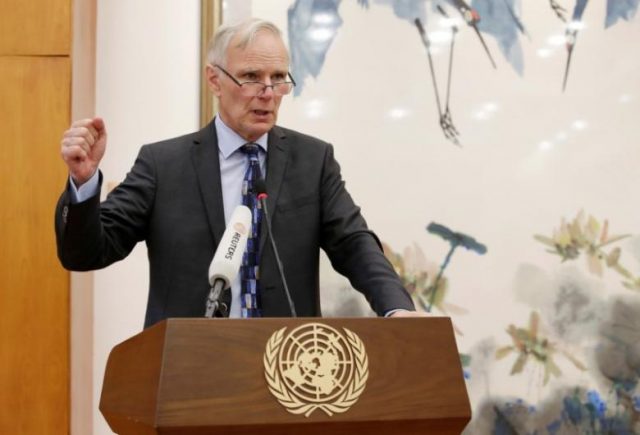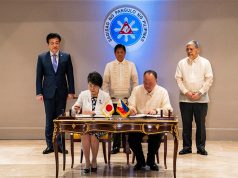
GENEVA — China accused a United Nations human rights investigator on Thursday of overstepping his mandate and interfering with China’s “judicial sovereignty” by raising the case of a high-profile activist detained after they met.
Philip Alston, U.N. special rapporteur on extreme poverty and human rights, made an official mission to China last August and included a plea for the release of lawyer Jiang Tianyong in his report to the U.N. Human Rights Council at a two-day debate.
Chinese diplomat Jiang Yingfeng told the Geneva forum that Alston’s report was “objective and fair” but also rebuked him.
“The special rapporteur referenced certain human rights defenders in his report and in so doing he has overstepped his mandate and meddled with China’s judicial sovereignty,” Jiang said.
China’s government would not tolerate any individual or group “using the banner of human rights” to cover up their activities, he added.
Alston had praised China for its “extraordinary achievement” of lifting up to 700 million out of rural poverty over the past 30 years, but said that inequality is “high and is rising.”
He also decried the “very rapidly shrinking space for the expression of views that differ from those of the (Communist) Party” and made a “special plea for the Government to release human rights lawyer Jiang Tianyong, with whom I met in Beijing.”
Chinese authorities formally charged Jiang with subversion of state power on Tuesday, after holding him incommunicado for six months.
Alston, an international law professor from Australia, called the charge “extremely serious” and “the equivalent of a legal sledgehammer.”
Jiang defended high-profile dissidents and practitioners of Falun Gong, the banned spiritual movement, before being disbarred in 2009. He continued to speak out against government crackdowns on rights lawyers before disappearing last November.
Alston said: “I of course do not agree that there is something called judicial sovereignty which would lead a Special Rapporteur or this Council not to reflect on cases that appear to violate human rights, appear to be unjust, even if they are part of the judicial process.”
Activists denounced as a missed opportunity the fact that representatives of France, the European Union and the United States did not refer to Alston’s criticism of China in their comments.
“These are governments that claim to care deeply about human rights in China and this is a venue in which to raise those concerns,” Sophie Richardson, China director of the New York-based group Human Rights Watch, told Reuters at the debate.
“They are undermining themselves, the U.N. human rights mechanisms, and independent Chinese civil society which is trying to use these institutions to solve problems,” she said.
In a speech, the International Federation for Human Rights called on the council’s 47 member states to demand his release, saying China had intensified its “targeting” of independent civil society including Jiang Tianyong.









